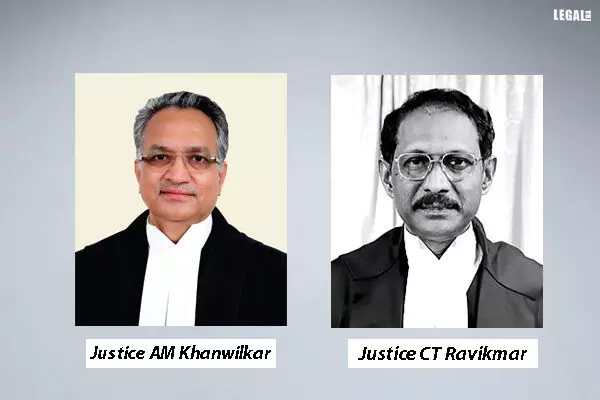- Home
- News
- Articles+
- Aerospace
- Artificial Intelligence
- Agriculture
- Alternate Dispute Resolution
- Arbitration & Mediation
- Banking and Finance
- Bankruptcy
- Book Review
- Bribery & Corruption
- Commercial Litigation
- Competition Law
- Conference Reports
- Consumer Products
- Contract
- Corporate Governance
- Corporate Law
- Covid-19
- Cryptocurrency
- Cybersecurity
- Data Protection
- Defence
- Digital Economy
- E-commerce
- Employment Law
- Energy and Natural Resources
- Entertainment and Sports Law
- Environmental Law
- Environmental, Social, and Governance
- Foreign Direct Investment
- Food and Beverage
- Gaming
- Health Care
- IBC Diaries
- In Focus
- Inclusion & Diversity
- Insurance Law
- Intellectual Property
- International Law
- IP & Tech Era
- Know the Law
- Labour Laws
- Law & Policy and Regulation
- Litigation
- Litigation Funding
- Manufacturing
- Mergers & Acquisitions
- NFTs
- Privacy
- Private Equity
- Project Finance
- Real Estate
- Risk and Compliance
- Student Corner
- Take On Board
- Tax
- Technology Media and Telecom
- Tributes
- Viewpoint
- Zoom In
- Law Firms
- In-House
- Rankings
- E-Magazine
- Legal Era TV
- Events
- Middle East
- Africa
- News
- Articles
- Aerospace
- Artificial Intelligence
- Agriculture
- Alternate Dispute Resolution
- Arbitration & Mediation
- Banking and Finance
- Bankruptcy
- Book Review
- Bribery & Corruption
- Commercial Litigation
- Competition Law
- Conference Reports
- Consumer Products
- Contract
- Corporate Governance
- Corporate Law
- Covid-19
- Cryptocurrency
- Cybersecurity
- Data Protection
- Defence
- Digital Economy
- E-commerce
- Employment Law
- Energy and Natural Resources
- Entertainment and Sports Law
- Environmental Law
- Environmental, Social, and Governance
- Foreign Direct Investment
- Food and Beverage
- Gaming
- Health Care
- IBC Diaries
- In Focus
- Inclusion & Diversity
- Insurance Law
- Intellectual Property
- International Law
- IP & Tech Era
- Know the Law
- Labour Laws
- Law & Policy and Regulation
- Litigation
- Litigation Funding
- Manufacturing
- Mergers & Acquisitions
- NFTs
- Privacy
- Private Equity
- Project Finance
- Real Estate
- Risk and Compliance
- Student Corner
- Take On Board
- Tax
- Technology Media and Telecom
- Tributes
- Viewpoint
- Zoom In
- Law Firms
- In-House
- Rankings
- E-Magazine
- Legal Era TV
- Events
- Middle East
- Africa
Supreme Court rules on the Sarfaesi Act

Supreme Court rules on the Sarfaesi Act
As per the law, an advocate should be regarded as subordinate to the district magistrate
The Supreme Court has directed that advocates, as officers of the court, can be asked by the district magistrate to take control of defaulting borrowers' assets for handing over to secured creditors under the Securitisation and Reconstruction of Financial Assets and Enforcement of Security Interest (Sarfaesi) Act, 2002.
Under the Act, on request of a secured creditor, the district magistrate (DM) or the chief metropolitan magistrate (CMM) would take possession of the secured assets of the defaulted borrowers and hand them over to the secured creditor.
Earlier, the Bombay High Court had ruled that the appointment of advocates by the DM or CMM was illegal as the advocates were not subordinate to the court. However, the Madras High Court, the Delhi High Court and the Kerala High Court had agreed on the decision to entrust the task to advocates under the Sarfaesi Act.
Ruling on a bunch of cross-appeals, the apex court bench comprising Justice AM Khanwilkar and Justice CT Ravikumar said that a DM or a CMM could appoint an advocate, as it would be impractical for the judicial officers to reach the location of each and every secured asset in busy financial cities like Mumbai, Chennai, Kolkata and New Delhi.
Justice Khanwilkar maintained that the Sarfaesi Act mandated expeditious handing over of secured assets to the secured creditors. "We are persuaded to take the view that an advocate is and must be regarded as an officer of the court and subordinate to the CMM/DM for the purposes of Section 14(1A) of the Sarfaesi Act," he said.
The bench said, "An advocate is a guardian of constitutional morality and justice, equally with the judge. He has an important duty as that of a judge."
The top court added, "There is no reason to assume that the advocate appointed by the CMM/DM would misuse the task and that it will not be carried out strictly as per the law."



